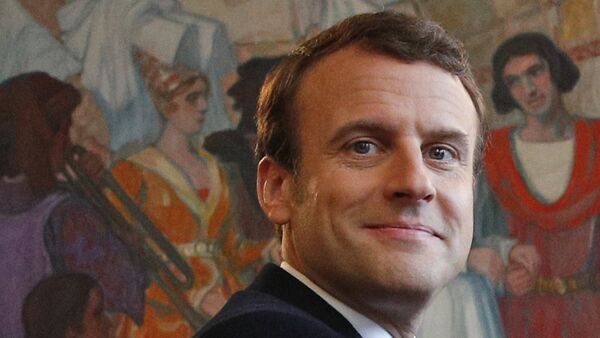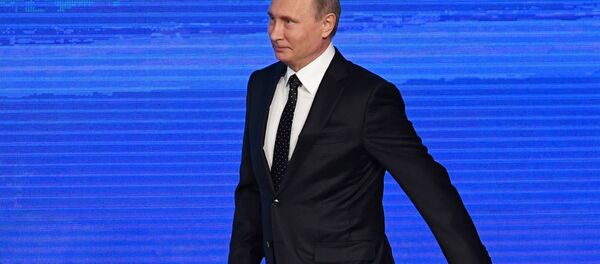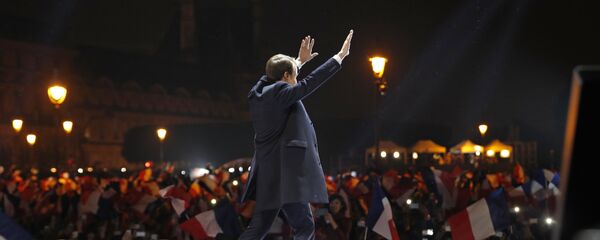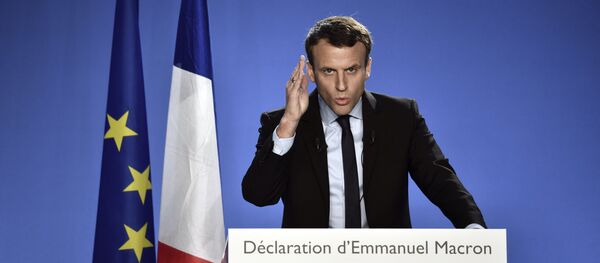Forty-seven percent of respondents said that they don’t like Macron as a person.
Macron and Russia
During a 2016 visit to Moscow as Economics Minister, Emmanuel Macron spoke about the need to lift the Western sanctions against Russia. However, with the prospects of winning the French presidency becoming increasingly feasible, his relations with Russia began to sour.
In February 2017, Macron accused Russia of hacking into the servers of his En Marche! movement. No evidence of such attacks was ever produced though. Moreover, a member of Macron’s team said that the purported hack attack had actually originated in Ukraine.
Similar mentions of alleged Russian hacking of En Marche! activists came in April 2017 and again with a similar result.
During the first round of the French presidential election on April 23, Emmanuel Macron’s campaign denied accreditation to Russia’s Sputnik and RT.
On May 3, Macron said that, if elected, he would never bend under “Putin’s diktat.” He also named the United States, not Russia, as France’s main partner in the war on terror.
President of a status quo
Emmanuel Macron’s longtime love affair with the Socialist ideals of his boss, Francois Hollande, started to wane last year when the would-be president started to criticize the incumbent for dragging his feet on promised liberal, pro-business reforms and on rolling back state-guaranteed social benefits.
Despite Macron’s criticism of the ruling Socialists’ domestic and foreign policy, it still looks like there will be no shortage of Hollande cohorts in his new Cabinet.
Macron and Islam
Pained and frightened by the long spate of terror attacks that have claimed more than 200 lives during President François Hollande’s five-years in power, many in France hoped that their new president would make security one of his top priorities.
However, it looks like Macron has nothing new to offer to fend off the threat posed by radical Islam.
This lack of purpose is partly explained by the fact that from the very start of his political career Macron has always leaned on the support of the country’s Muslim community.
In November 2015, he said that convicted terrorists should be allowed to retain their French citizenship.
In 2016, he criticized an official ban on full-body "burkini" swimsuits worn by some Muslim women, and in 2017 he raised many eyebrows by saying that “There is no such thing as French culture. There is culture in France, and it is diverse.”
Emmanuel Macron’s victory also means that UOIF – an influential Islamic association with close links to the Muslim Brotherhood and which Marine Le Pen and Francois Fillon both pledged to outlaw — will continue its work in France.
This means that by leaning on the support of the country’s Muslim community, Emmanuel Macron is keeping alive the policy of Francois Hollande, whose election in 2012 was at least partly due to the “Muslim vote.”
The 39-year-old leader of the centrist En Marche! movement, Macron won in the second round with over 66 percent of votes, beating his far-right National Front rival Marine Le Pen, who ended up with almost 34 percent.
In the first-round vote on April 23, Emmanuel Macron got 24 percent of the votes with Marine Le Pen coming in second with 21 percent.
Never miss a story again — sign up to our Telegram channel and we'll keep you up to speed!






